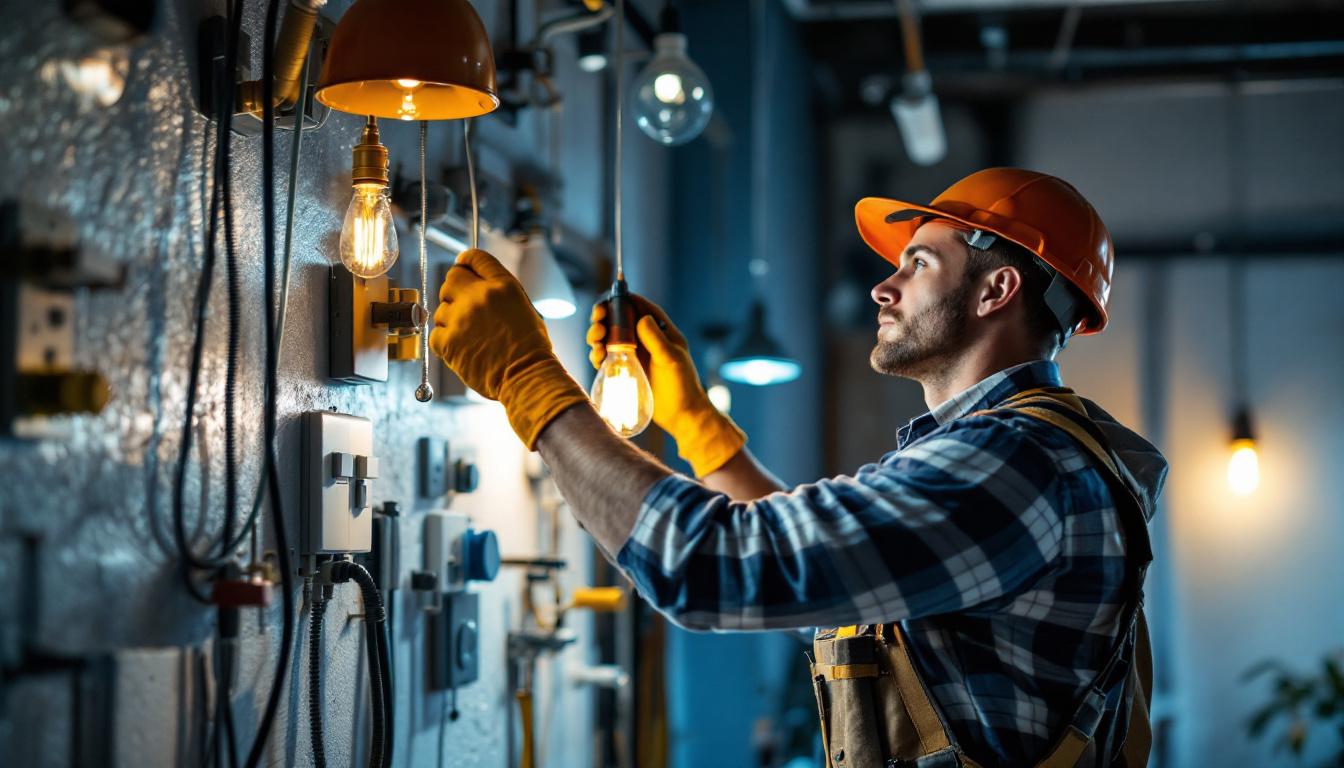
As the demand for sustainable and energy-efficient solutions continues to rise, solar sidewalk lights have emerged as a significant trend in the lighting industry. For lighting contractors, understanding the benefits and applications of solar sidewalk lights is crucial for staying competitive and meeting client needs. This article delves into the top reasons why lighting contractors should focus on solar sidewalk lights, exploring their advantages, market potential, and practical considerations.
Solar technology has revolutionized various sectors, and outdoor lighting is no exception. The integration of solar panels into lighting systems offers a sustainable alternative to traditional electric-powered lights. This shift is not merely a trend; it reflects a broader movement towards eco-friendly solutions that appeal to environmentally conscious consumers.
One of the most compelling reasons to adopt solar sidewalk lights is their positive impact on the environment. By relying on renewable energy from the sun, these lights significantly reduce carbon footprints. They eliminate the need for electricity generated from fossil fuels, helping to combat climate change and promote sustainability.
Furthermore, solar lights do not require extensive wiring or trenching, which minimizes land disruption and preserves natural habitats. This eco-friendly approach aligns with the growing consumer preference for products that contribute to environmental preservation. Additionally, many solar lights are designed with LED technology, which not only enhances energy efficiency but also extends the lifespan of the lighting fixtures, further reducing waste and the need for frequent replacements.
For both contractors and clients, the cost benefits of solar sidewalk lights are substantial. Once installed, solar lights incur minimal operational costs since they harness free energy from the sun. This translates to lower electricity bills and reduced maintenance expenses, as solar lights typically have longer lifespans and fewer components that require replacement.
Moreover, the initial investment in solar technology has become increasingly competitive with traditional lighting systems. As technology advances and production costs decrease, the financial barrier to entry for solar sidewalk lights continues to diminish, making them an attractive option for budget-conscious clients. In addition to the direct savings, many municipalities are now offering incentives and rebates for the installation of solar lighting, further enhancing the economic appeal of these systems. This financial support not only encourages the adoption of solar technology but also fosters a community-wide commitment to sustainable practices.
The market for solar sidewalk lights is expanding, presenting lighting contractors with numerous opportunities. As urban areas grow and communities seek to enhance public spaces, the demand for effective and sustainable lighting solutions increases. Lighting contractors who specialize in solar sidewalk lights can position themselves as leaders in this niche market.
With the ongoing trend of urbanization, cities are investing in infrastructure that promotes safety and accessibility. Solar sidewalk lights play a vital role in illuminating pathways, parks, and public areas, enhancing visibility and security for pedestrians. Lighting contractors can capitalize on these urban development projects by offering solar solutions that align with city planners’ sustainability goals.
In addition, many municipalities are implementing green initiatives and seeking to reduce energy consumption. By providing solar sidewalk lights, contractors can help cities achieve their sustainability objectives while also fulfilling their lighting needs. Furthermore, the integration of smart technology in solar lighting systems is becoming increasingly popular. Features such as motion sensors, dimming capabilities, and connectivity to smart city networks can enhance the functionality of solar sidewalk lights, making them even more attractive to urban planners and developers.
Homeowners are increasingly seeking ways to enhance their outdoor spaces while minimizing their environmental impact. Solar sidewalk lights offer an appealing solution for residential properties, providing both aesthetic and functional benefits. Lighting contractors can tap into this growing market by promoting solar lights for driveways, gardens, and walkways.
Moreover, the versatility of solar sidewalk lights allows for creative installations that can enhance the overall design of a property. By showcasing the potential of these lights, contractors can attract homeowners looking to elevate their outdoor aesthetics while embracing sustainable practices. Additionally, the ease of installation and maintenance of solar lights makes them a desirable option for homeowners who may not have the time or resources for extensive electrical work. As more people become environmentally conscious, the appeal of solar lighting solutions continues to grow, opening up further avenues for contractors to explore in residential settings.
The evolution of solar technology has led to significant improvements in the performance and reliability of solar sidewalk lights. Lighting contractors must stay informed about these advancements to ensure they provide the best products to their clients. As the demand for sustainable and energy-efficient solutions grows, understanding the latest trends in solar lighting becomes crucial for maintaining a competitive edge in the industry.
Modern solar panels are more efficient than ever, converting a higher percentage of sunlight into usable energy. This means that solar sidewalk lights can operate effectively even in less-than-ideal weather conditions. Lighting contractors can reassure clients that these lights will perform reliably throughout the year, regardless of seasonal variations. Furthermore, the integration of bifacial solar panels, which capture sunlight from both sides, has emerged as a game-changer, allowing for increased energy generation in shaded areas or during cloudy days.
Additionally, advancements in battery technology have led to longer-lasting and faster-charging batteries. This ensures that solar lights can provide consistent illumination throughout the night, addressing one of the common concerns associated with solar lighting systems. New lithium-ion batteries, for example, offer higher energy density and longer life cycles compared to traditional lead-acid batteries, making them a preferred choice for modern solar applications. As a result, contractors can confidently recommend solar sidewalk lights that not only illuminate pathways but also enhance safety and aesthetics in outdoor spaces.
Smart technology is becoming increasingly prevalent in outdoor lighting, and solar sidewalk lights are no exception. Many new models come equipped with features such as motion sensors, timers, and remote control capabilities. These enhancements not only improve energy efficiency but also offer added convenience for users. For instance, motion sensors can automatically adjust brightness levels based on pedestrian traffic, ensuring that energy is conserved when the area is unoccupied while providing ample light when needed.
Lighting contractors can leverage these smart features to appeal to tech-savvy clients who prioritize automation and control in their outdoor lighting systems. By showcasing the benefits of smart solar sidewalk lights, contractors can differentiate themselves in a competitive market. Moreover, the integration of mobile apps allows users to monitor and control their lighting systems remotely, enabling them to customize settings and receive alerts for maintenance needs. This level of connectivity not only enhances user experience but also positions contractors as forward-thinking professionals who embrace the future of lighting technology.
While solar sidewalk lights offer numerous advantages, proper installation remains crucial to their effectiveness. Lighting contractors must be equipped with the knowledge and skills necessary to ensure optimal performance.
Before installation, a thorough site assessment is essential. Contractors should evaluate the location for sunlight exposure, potential obstructions, and the overall layout of the area. This assessment will help determine the best placement for solar lights, ensuring they receive adequate sunlight for charging.
Additionally, understanding the specific needs of the client and the intended use of the lighting will guide the selection of appropriate solar light models. Tailoring the installation to the unique characteristics of each site will enhance the overall effectiveness of the lighting system.
Although solar sidewalk lights require less maintenance than traditional lighting systems, some upkeep is still necessary to ensure optimal performance. Lighting contractors should educate clients on how to care for their solar lights, including regular cleaning of solar panels and periodic battery checks.
By providing clients with maintenance tips and offering follow-up services, contractors can foster long-term relationships and encourage repeat business. This proactive approach not only enhances customer satisfaction but also positions contractors as trusted experts in solar lighting solutions.
As with any lighting installation, compliance with local regulations and standards is crucial. Lighting contractors must stay informed about the legal requirements governing the installation of solar sidewalk lights in their area.
Depending on the location, certain permits may be required for the installation of solar sidewalk lights. Contractors should familiarize themselves with local zoning laws and permitting processes to avoid potential legal issues. This knowledge not only ensures compliance but also enhances the contractor’s reputation as a responsible and knowledgeable professional.
Additionally, understanding any restrictions related to the placement and design of solar lights can help contractors provide clients with informed recommendations that align with local regulations.
Many governments and municipalities offer incentives and rebates for the installation of solar lighting systems as part of their efforts to promote sustainability. Lighting contractors should stay updated on available programs that can benefit their clients financially. By informing clients about these incentives, contractors can help make solar sidewalk lights a more attractive option.
Taking advantage of these programs not only enhances the affordability of solar lights but also emphasizes the contractor’s commitment to promoting sustainable practices.
The growing popularity of solar sidewalk lights presents a unique opportunity for lighting contractors to differentiate themselves in a competitive market. By focusing on the benefits of solar technology, understanding market demand, and staying informed about advancements and regulations, contractors can position themselves as leaders in sustainable outdoor lighting solutions.
As consumers increasingly seek eco-friendly options, the demand for solar sidewalk lights is likely to continue its upward trajectory. Contractors who embrace this trend and invest in their knowledge and skills will not only meet client needs but also contribute to a more sustainable future.
In conclusion, the focus on solar sidewalk lights is not just a passing trend; it is a vital aspect of the future of outdoor lighting. By recognizing the importance of these systems, lighting contractors can enhance their service offerings and play a pivotal role in promoting sustainable practices in their communities.
Ready to lead the way in sustainable outdoor lighting solutions? At LumenWholesale, we provide lighting contractors with the highest quality solar sidewalk lights at unbeatable wholesale prices. Our spec-grade products meet rigorous industry standards, ensuring that your projects shine with reliability and performance. Say goodbye to middleman markups and hello to hassle-free bulk buying with free shipping. Elevate your lighting game and give your clients the eco-friendly, cost-effective illumination they desire. Choose LumenWholesale for the perfect combination of quality, affordability, and convenience. Explore our selection and secure the best value in wholesale lighting today.

Discover how a 2 lamp ballast can boost your lighting contractor profits with expert tips, industry insights, and cost-saving strategies.

Discover effective strategies and innovative techniques for lighting contractors in this comprehensive guide.

Discover how affordable shop lights are revolutionizing the lighting industry for contractors.

Discover the key features and benefits of Type A lamp bulbs in this essential guide for lighting contractors.